Description
Check exclusive video showing the LP for sale!
Check exclusive video showing the LP for sale!
Label: EMI Records
Catalog#: 064 2400851 Very good condition (visual inspection).
Format: Vinyl, LP, Album
Country: Greece
Released:1984
Tracklist
A1 Assassing 7:00
A2 Punch And Judy 3:17
A3 Jigsaw 6:46
A4 Emerald Lies 5:06
B1 She Chameleon 6:52
B2 Incubus 8:28
B3 Fugazi 8:00
(C)1984 EMI Records Ltd.
Gatefold Sleeve
Label: EMI – 064-2400851, EMI – 064 240085 1
Format: Vinyl, LP, Album, Gatefold Sleeve
Country: Greece
Released: 1984
Style: Prog Rock, Symphonic Rock
A1 Assassing 6:59
A2 Punch & Judy 3:19
A3 Jigsaw 6:49
A4 Emerald Lies 5:13
B1 She Chameleon 6:49
B2 Incubus 8:30
B3 Fugazi 8:05
Phonographic Copyright ℗ – EMI Records Ltd.
Copyright © – EMI Records Ltd.
Record Company – EMIAL S.A.
Made By – EMI Greece S.A.
Printed By – EMI Greece S.A.
Pressed By – Columbia, Athens – 11332
Backing Vocals – Linda Pyke (tracks: B2)
Bass – Pete Trewavas
Drums – Ian Mosley
Guitar – Steve Rothery
Keyboards – Mark Kelly
Lyrics By – Fish
Music By – Marillion
Percussion [Additional] – Chris Karen*
Producer – Nick Tauber
Recorded November-December 1983 January-February 1984 at Manor Studio, Sarm East, Eel Pie and Maison Rouge Studios. Church Organ recorded at Angel Studios London.
Issued in a gatefold sleeve. Disc inner sleeve made in transparent plastic.
Title on spine misspelled as “Fugasi”.
℗ 1984 Original sound recordings made by EMI Records Ltd.
Made and printed in Greece by EMI Greece S.A.
Rights Society: AEPI
Other (Labels): A/A 11332
Other (Cover): MT 11332
Matrix / Runout (Side A): 2400851 A
Matrix / Runout (Side B): 2400851 B
Fugazi is the second studio album of the progressive rock band Marillion. It was released in 1984 and was the first album with Ian Mosley on drums. It reached no. 5 on the UK album charts, stayed on the chart for a total of 20 weeks and contained the UK top 40 singles Punch And Judy (no. 29) and Assassin (no. 22).
The album was produced under difficult circumstances, with the band employing and ejecting a number of drummers in quick succession following the departure of Mick Pointer, before finally settling on Ian Mosley.
Fish – vocals
Steve Rothery – guitars
Mark Kelly – keyboards
Pete Trewavas – bass
Ian Mosley – drums
Linda Pyke – backing vocals on “”Incubus””
The term ‘fugazi’ was originally coined by American troops during the Vietnam War and means ‘all fucked up’. Hence, when Fish says ‘The World is totally fugazi’ he is referring to the state of the planet as depicted in the songs lyrical content. The word is actually an acronym, standing for “”Fucked Up, Got Ambushed, Zipped In”” (as in, zipped in a body bag)
1984 UK Album Chart 5
Named after slang used by American troops in Vietnam and meaning “all fucked up”, Fugazi – and its title track in particular – illustrated the progress the band had made since their rather fragile sounding debut album.
Prophets, visionaries and poets everywhere heard Fish’s rallying call as Marillion’s gold-certified second album found a way to bring fresh 80s attack to classic prog complexity, drama and wordplay. Music hadn’t witnessed melodrama like this since Peter Gabriel was wearing fox heads. Impeccably indulgent, and at the vanguard of prog’s second coming.
And yet. Looking back, Fish thinks that Fugazi – and the band’s debut, Script For A Jester’s Tear – show a band still finding their feet. “I hear the youth, the naivety and the aspiration in it all,” he says. “You can hear us trying to find our own style. Don’t get me wrong, those are two wonderful albums. But I think Misplaced Childhood [the following album] was the marker for us, not just because it was a hit, but also because we found ourselves.
“We were still trying to make a name for ourselves and bust out of the divisions as far as success was concerned, and I was dibbling and dabbling with various things at that time too, so that’s why Fugazi was a far darker album than Script.”
What’s to like?
Impressive second album by the “sentimental mercenaries” of the eighties prog scene, proving that Marillion had the musicianship and the determination to grow beyond their roots and reach a wider audience.
The low down
Fugazi – a slang term for everything going to hell (or “all f****d up”, according to online dictionaries).
It’s also the title of Marillion’s second album, and given the circumstances surrounding their sophomore release, a pretty apt title. When the band had gone into the studio to record their debut album Script For A Jester’s Tear the year before, the songs were already in place having been played live on tour beforehand. This time around the band were practically starting from scratch, with one song left over from the early days (She Chameleon) and one song which had been tried out the summer before at the prestigious Reading festival (Assassing).
So the pressure was on, and not helped by a revolving drummer saga, with the band having fired founder member Mick Pointer because they felt his performances were not developing at the same pace as the other players.
And then through unfortunate timing, the band set off on tour to support the Fugazi album, but it wouldn’t hit the stores until several weeks later. So audiences were being presented with six new tracks, taking up half of the live show, before having a chance to become familiar with them. I saw the band early in that tour and have to admit that I came away disappointed that night. The guys played well and the audience loved them, but it was just too much new music to take in, and there was almost a sense of relief when the band finally played the older numbers.
When the album was eventually released I bought it quickly enough, but with the tour having passed, I felt less interested in the material, and Fugazi quickly became overshadowed by the release of Rush’s Grace Under Pressure. (There’s a certain irony in this, as Marillion had supported Rush on a US tour the year before!). But the one thing both albums had in common was the desire to sound fresh and relevant, using the latest technology and leaving the past behind.
The Script album had been rooted in the music of Genesis, Camel and Van Der Graaf Generator, and looking back now, it’s easy to see how much Fish’s vocals were in thrall to Peter Hammill’s jagged and emotive style of singing. (So much so that Hammill had been invited to support Marillion on the Script tour, and I remember one comedian in the audience shouting to Hammill “They should be supporting you!”)
But Fugazi was wholly different proposition. Gone were the seventies affectations, replaced by a pristine state of the art sound mix, with every note and beat precisely where it was needed within the song. Even though some of the songs were still relatively long by eighties standards, the band were quickly maturing into impressive songwriters. They had a talent for coming up with songs with memorable hooks and punchy rhythms, with the focus on the music and not technical proggery.
Steve Rothery’s guitar work is at the core of Marillion’s sound, whether it be lightly played chords echoing during the verses, or uplifting melodic solos that are instantly memorable and stay with you long after the album has finished. And while he may have initially taken his inspiration from Camel’s Andy Latimer, he was very much growing into his own signature style by Fugazi, and produced some his most memorable melodies on this album – the closing section of Incubus is a particular favourite of mine.
The revolving drummer saga might have had all the hall marks of Spinal Tap, but it worked out in the end because Ian Mosley’s contribution to the album is immediately felt as soon as the music starts. Having toured with Steve Hackett the year before, he was in a different league to Mick Pointer, with a much wider command of a more varied drum kit. Mosley’s proficiency clearly gave the rest of the players the confidence to push their music to a higher level; Script might have gotten by on charm and nostalgia, but Fugazi showed the band meant business.
Take the opening track Assassing as an example. The tribal drumming creates a rush of excitement and expectation that quickly builds into a thumper of a rock track with a catchy chorus. Accessible enough to be a single that got them on to Top Of The Pops, but also a terrific opening number for opening the live shows:
Which is probably why Marillion were always ahead of the eighties prog pack, because their music managed to bridge the gap between thoughtful rock and catchy pop melody – a talent which would come to full bloom with their next album.
But the band’s other ace in the hole was their front man Fish. An imposing presence in the flesh, but an equally strong personality in the lyrics. The band might have been embraced by the prog crowd, but the lyrics eschewed the familiar fantasy tropes, and went for the jugular with incisive observations on social unrest and toxic relationships.
Fish had a unique talent for writing lyrics that were poetic in presentation, but rarely pretentious – the words quickly got under the listener’s skin, and by the next tour the audience were singing them back to the band, word perfect.
And who would have thought that some of those sentiments, written 35 years ago, would be just as prescient today?
“Aural contraceptive aborting pregnant conversation” – people spending more time on mobile phones with ear pieces, isolating themselves from the world around them?
“But now I’m the snake in the grass, the ghost of film reels past, I’m the producer of your nightmare and the performance has just begun” – written about indiscretions captured on polaroid cameras, but just as relevant to today’s obsession with social media, sexting and revenge porn.
And if ever there was a Marillion song that sums up the mess the world seems to be in right now, then I guess it would be the album’s title track:
“Where are the prophets, where are the visionaries, where are the poets?”
Fortunately this line-up of the band remained together to share vision and poetry for two subsequent albums, before Fish took a curtain call and the path to solo adventures.
I know a lot of fans feel that Misplaced Childhood and Clutching At Straws are the superior albums, and it’s a sentiment I share to some extent, but the themes of those albums are very much inward looking based on Fish’s personal experiences. Whereas Fugazi, for me, is the album that perhaps best embodies the band’s spirit of determination under pressure and gritty social commentary on the world around them.
“Baptised in the tears from the real”.



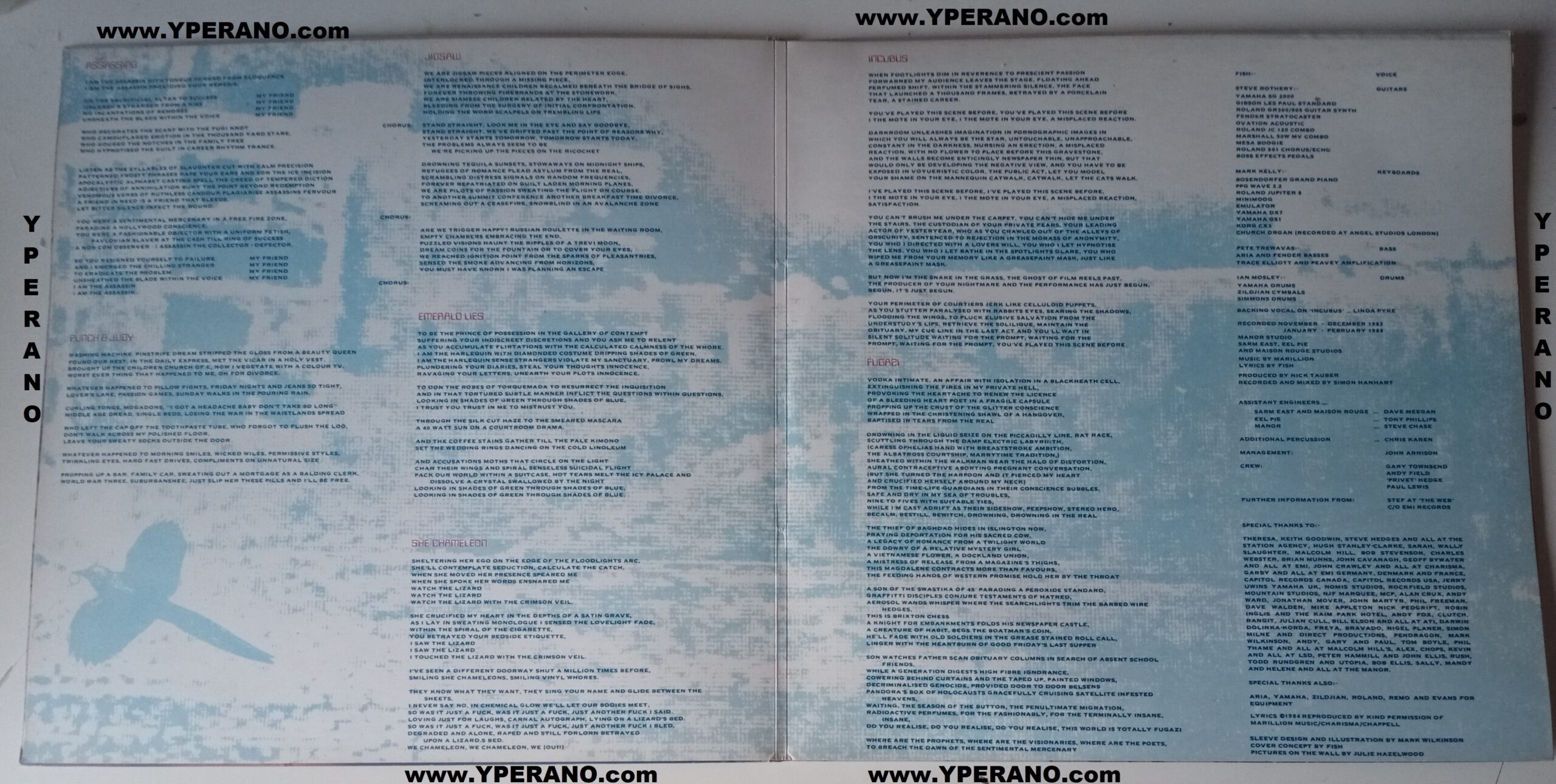
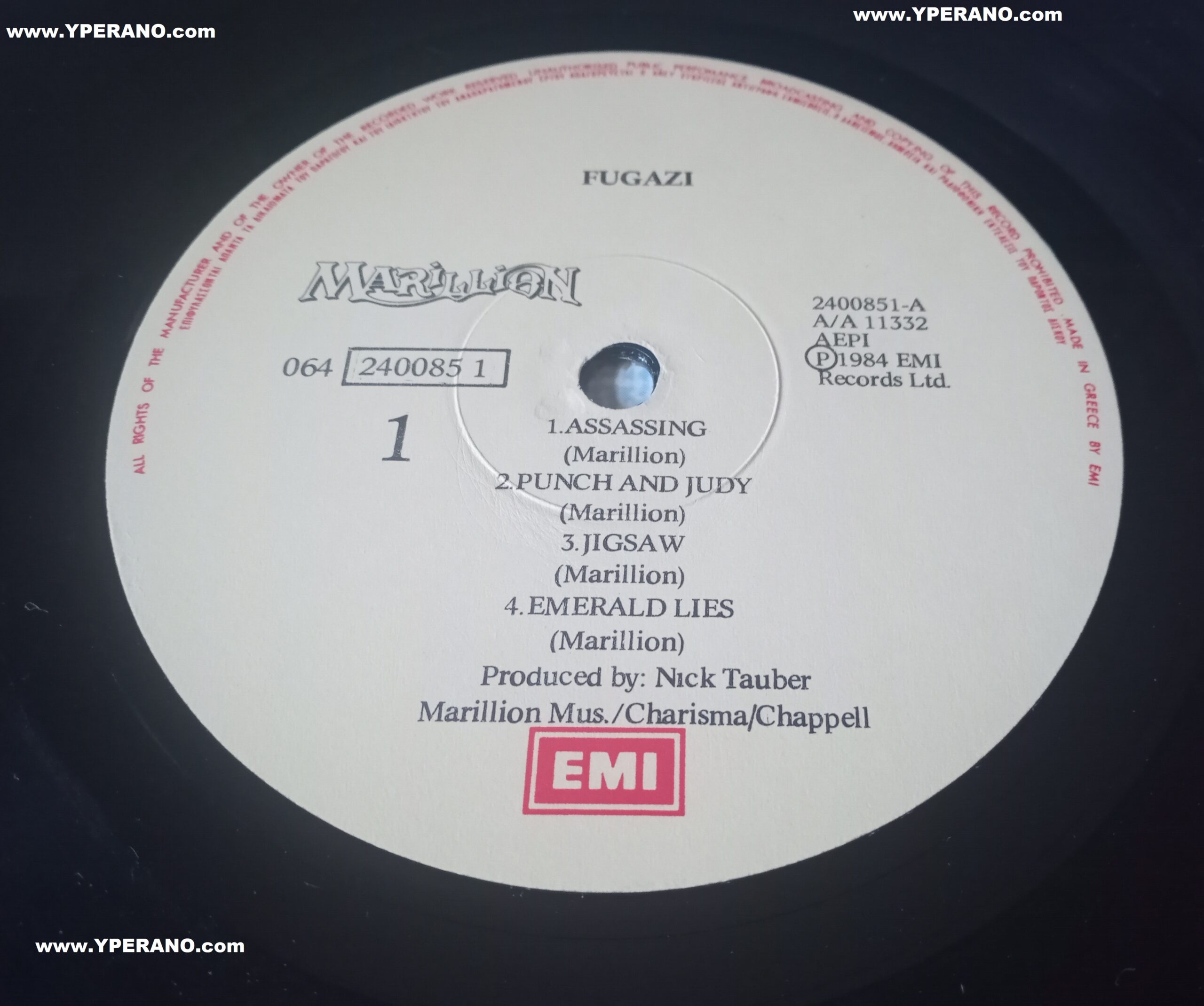
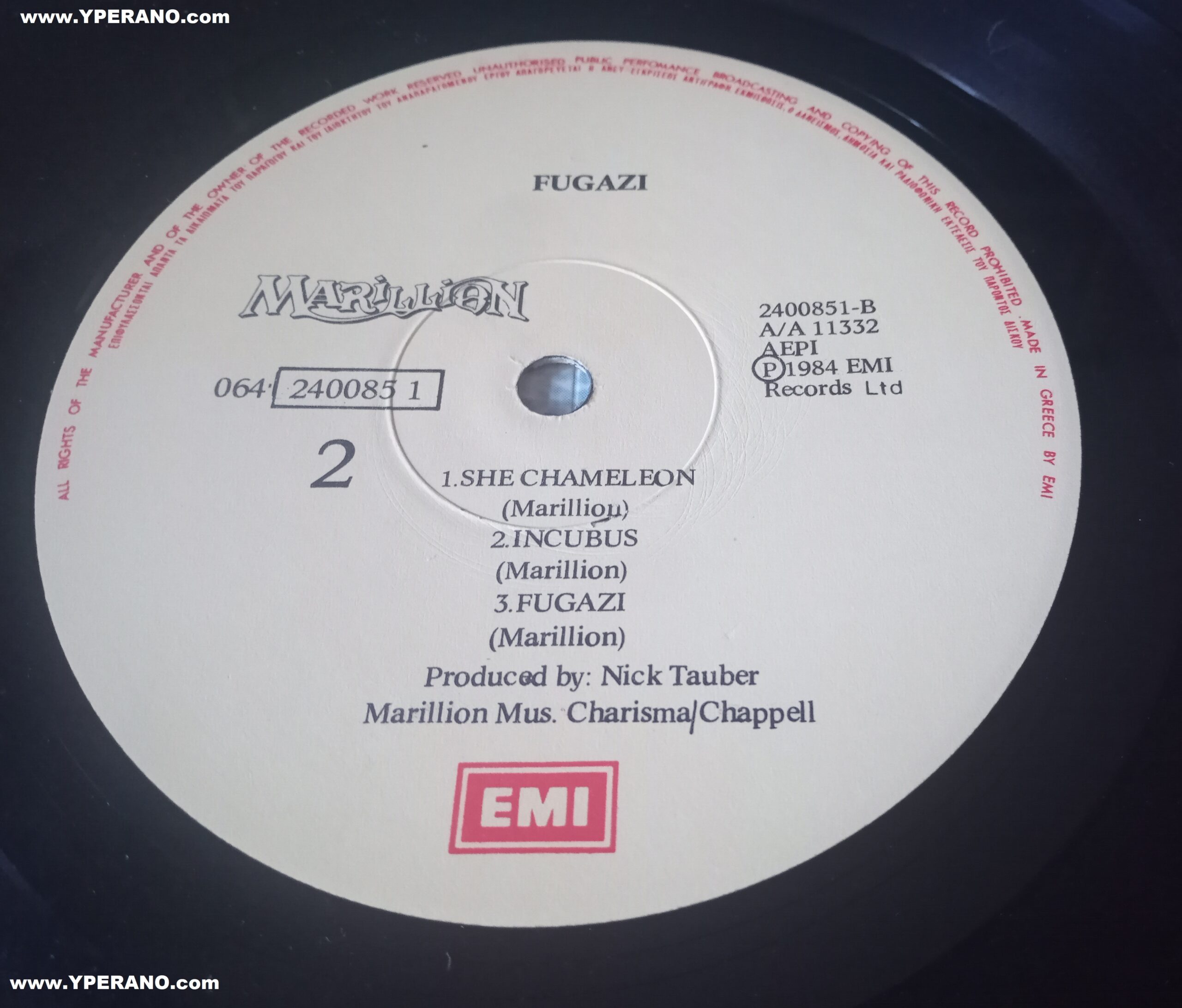
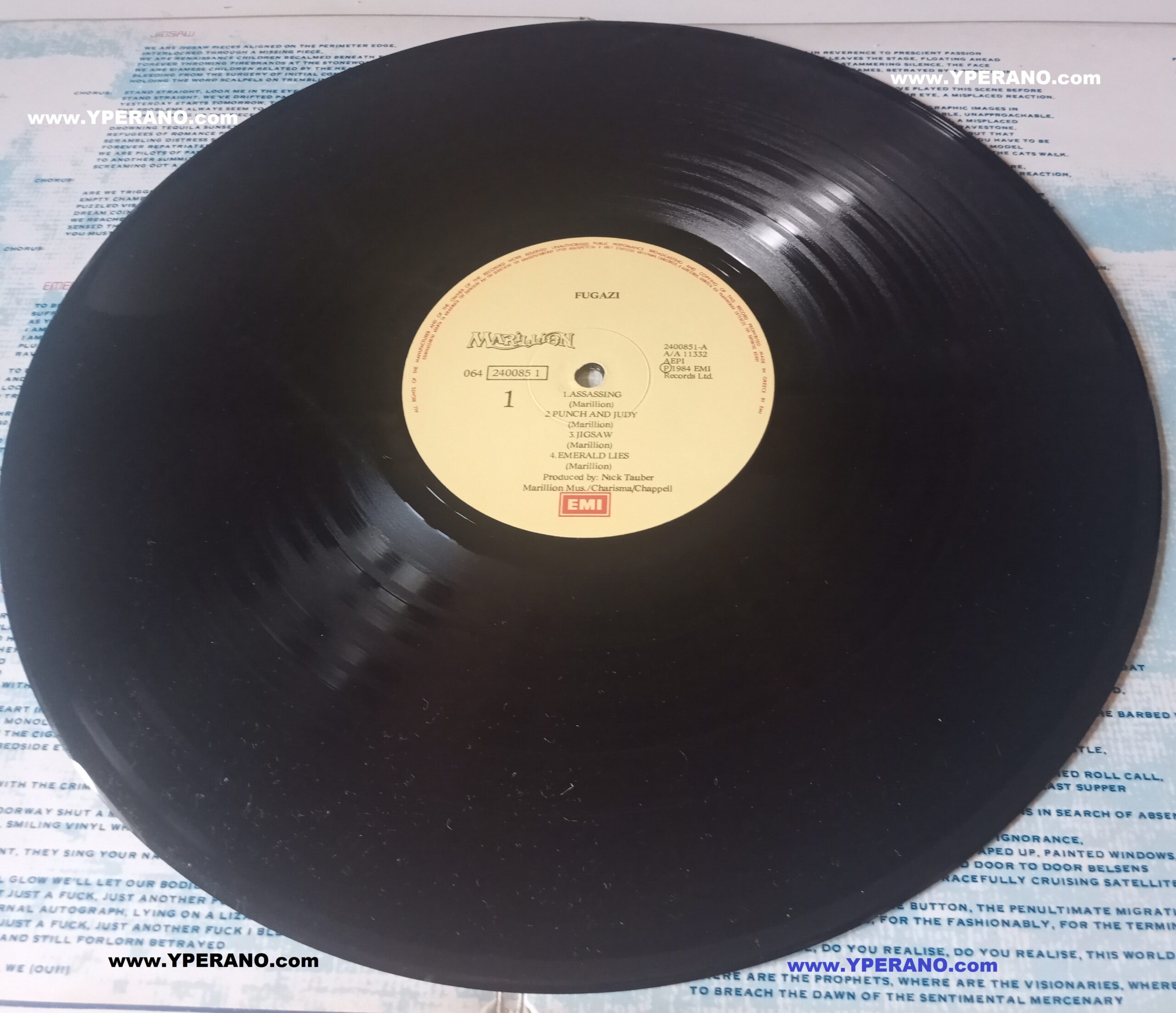
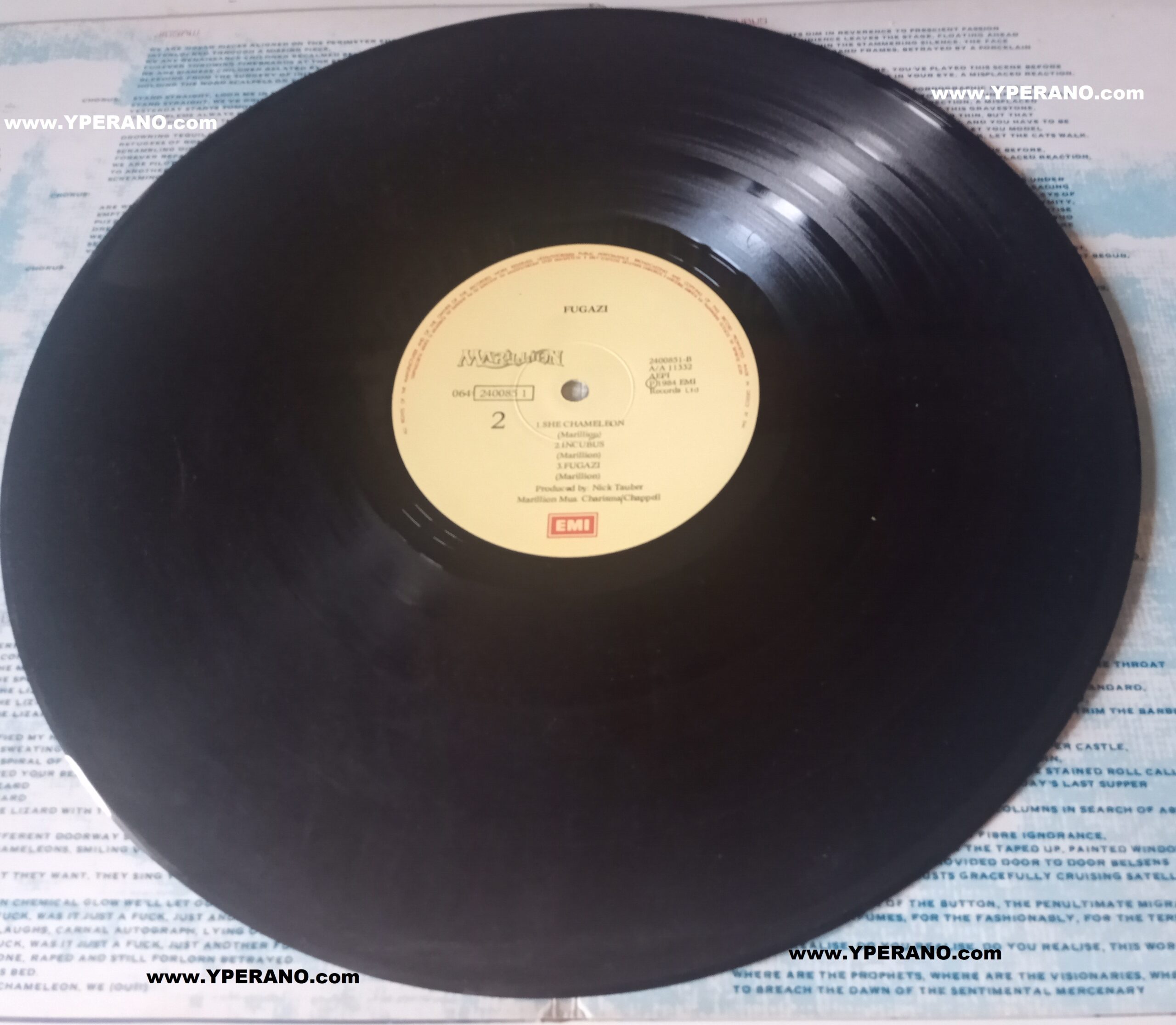
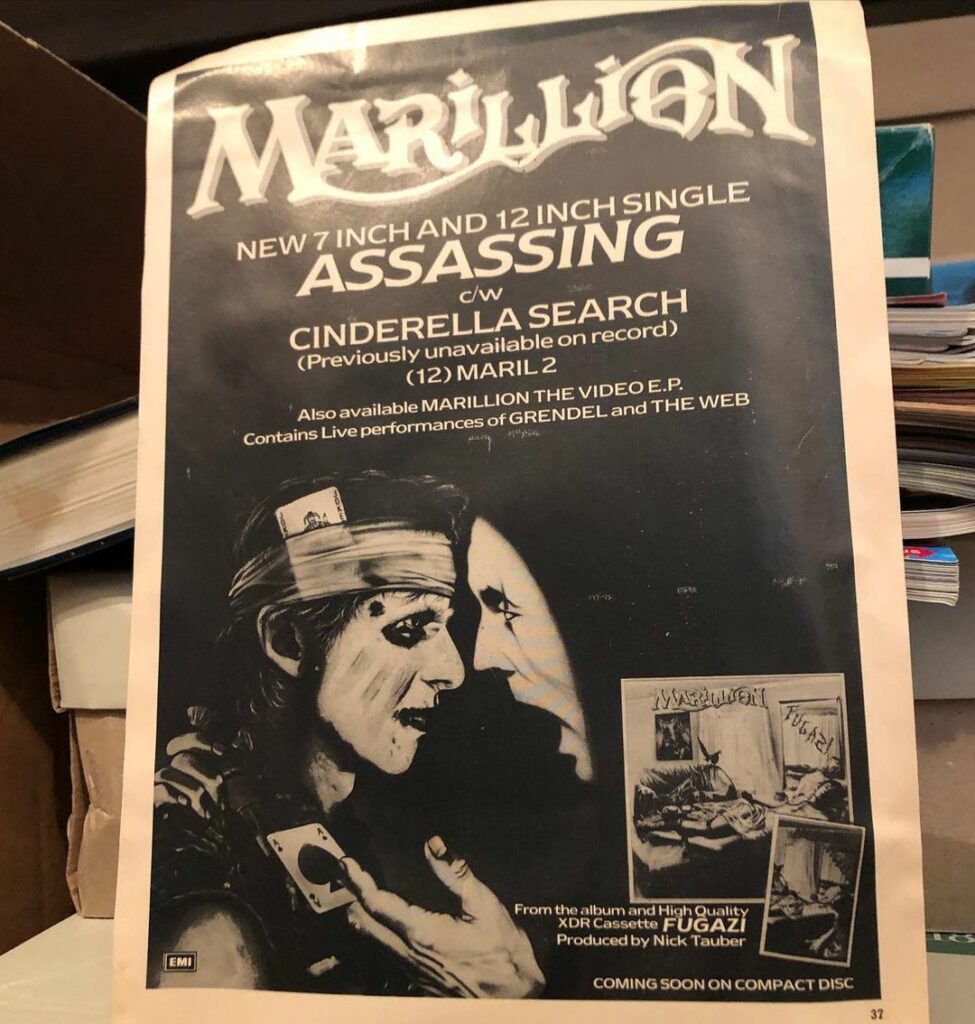
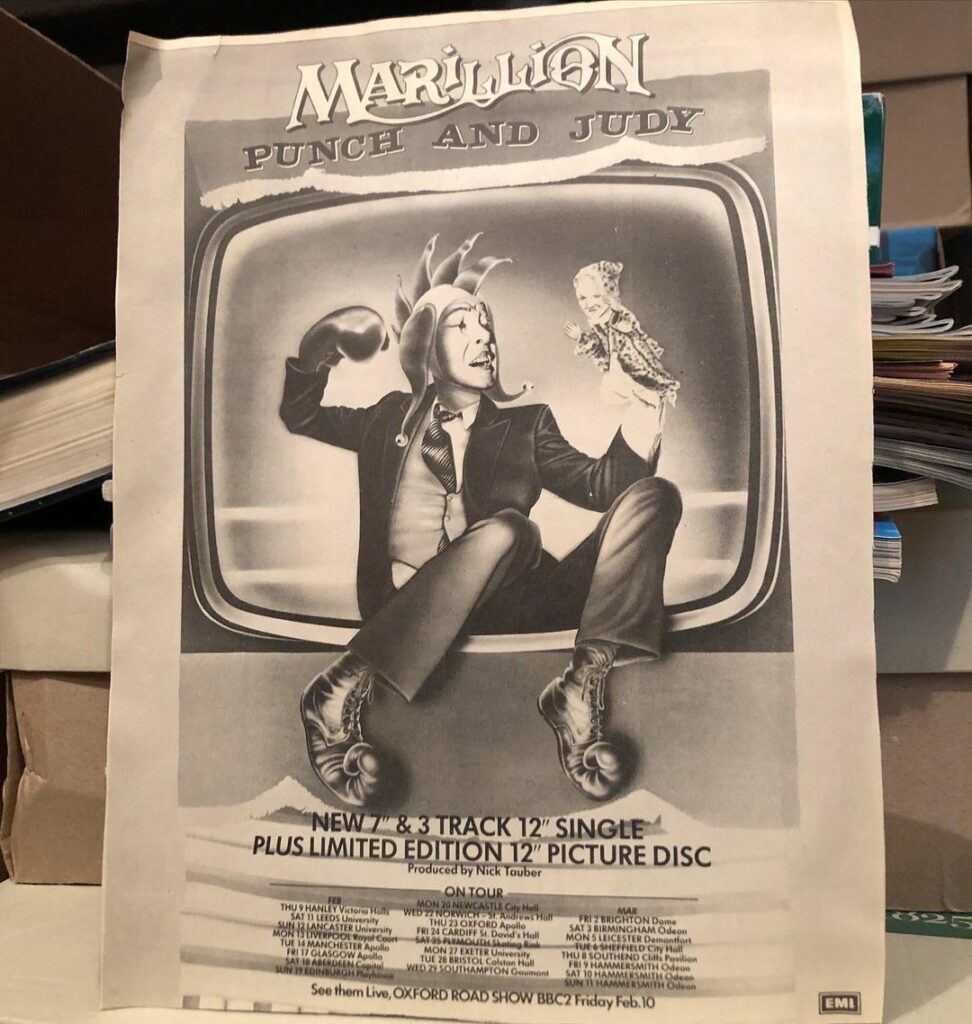
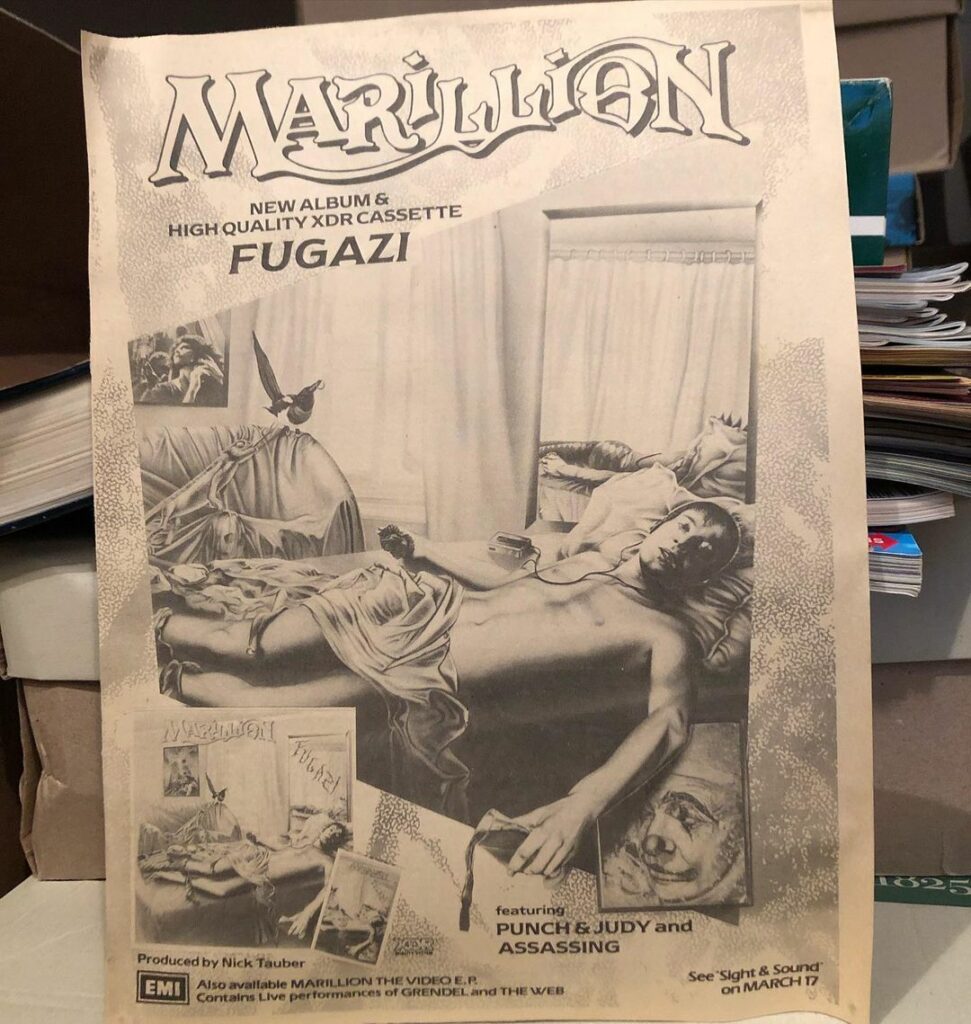
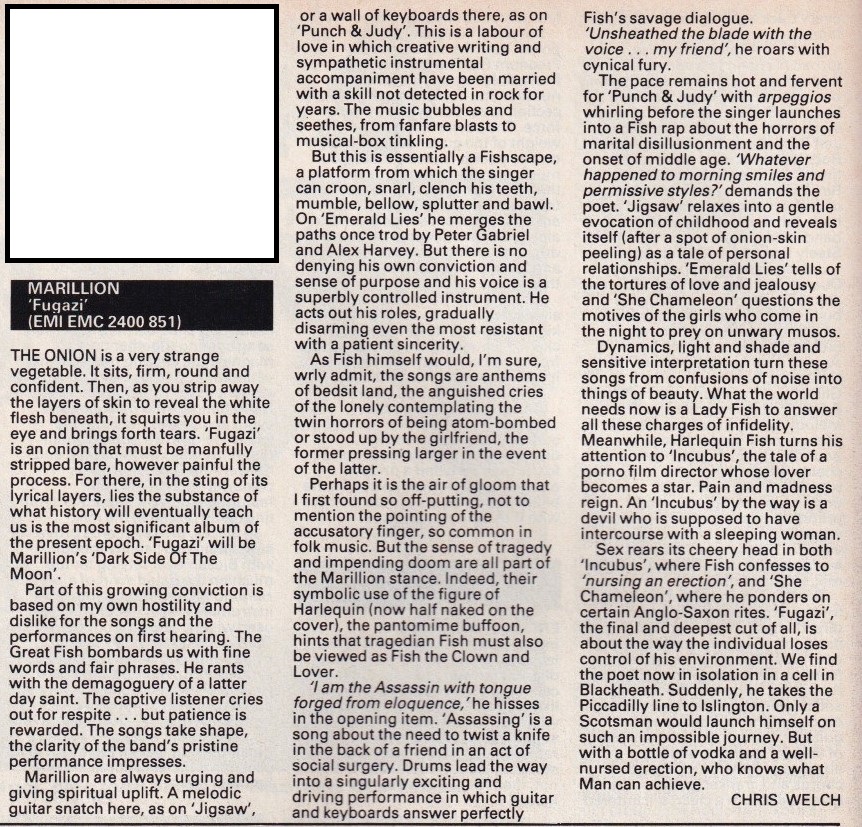

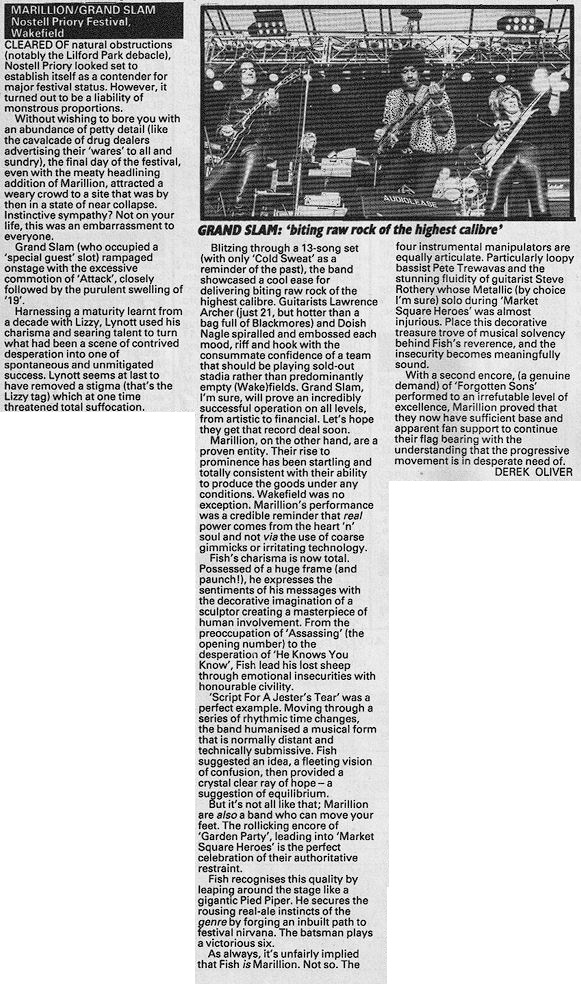
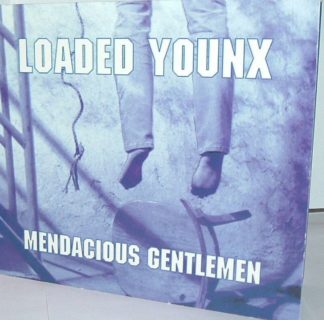

![DE/TEST: Language Of Violence CD [Neo Thrash Metal and Hardcore] a la MACHINE HEAD -](https://yperano.com/wp-content/uploads/2016/03/18279-DETEST-Language-Of-Violence-CD-Neo-Thrash-Metal-and-Hardcore-a-la-MACHINE-HEAD.jpg)



Reviews
There are no reviews yet.